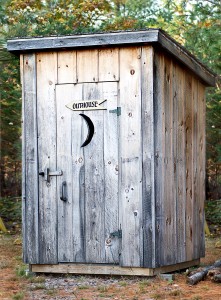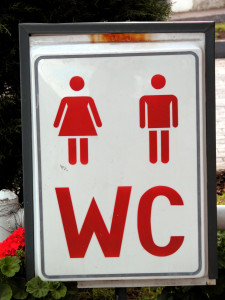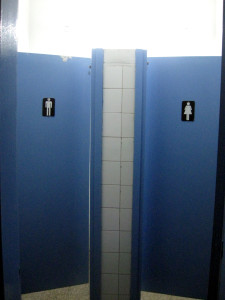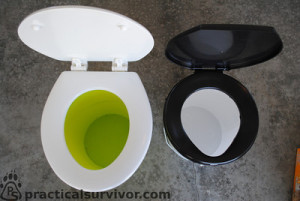
As preppers, we feel we’re ready for anything. We’re ready if the lights go out, a major earthquake, or other natural disasters. We’re ready in the event a hostile force tries to take over the country. We have food, water, and other supplies at the ready. In short, we’re ready for an SHTF. Problem is, after that @#$# hits the fan, what will you do with all that crap?
Improper disposal of human waste can create a disaster itself. Local water sources can become contaminated in short order. Human waste-based diseases can decimate your camp in weeks. Diseases such as:
- Ascariasis and other soil-transmitted helminthiasis.
- Cholera.
- Clostridium difficile.
- Cryptosporidiosis.
- Enteroviruses.
- Giardiasis.
- Hepatitis A.
- Hepatitis E
After the 2010 Haiti earthquake, over 220,000 people are thought to have been killed. To add to the horror 216,000 people were infected by Cholorea. Of that number over 8,000 people succumbed to the illness.
What Is Cholera?
Cholera is an acute intestinal infection causing profuse watery diarrhea, vomiting, circulatory collapse and shock. Many infections are associated with milder diarrhea or have no symptoms at all. If left untreated, 25-50% of severe cholera cases can be fatal. A person can get cholera by drinking water or eating food contaminated with the cholera bacterium. Large epidemics are often related to fecal contamination of water supplies or street vended foods. The disease is occasionally spread through eating raw or undercooked shellfish that are naturally contaminated. Source:Centers For Disease Control & Prevention…
“Never make coffee from water found downstream of the latrine”
Check out some of these helpful articles and use it as a way to round out your prep plan. Remember, sooner or later, that food you socked away will be transformed.

Survival Sanitation: How to Deal with Human Waste
In a SHTF situation, proper sanitation is of utmost importance if you want to keep your family from getting seriously sick. When you add to that a lack of medical facilities due to grid-down issues, staying healthy becomes even more crucial. In this series I discuss the skills you need to avoid getting and spreading disease, and how to deal with waste and trash when your town and city services are no longer working. Read More…

If the water lines are damaged or if the damage is suspected, do not flush the toilet. Avoid digging holes in the ground and using these. Untreated
raw sewage can pollute fresh groundwater supplies. It also attracts flies and promotes the spread of diseases. See More…
Dealing With Human Waste & Hygiene

As a health care professional for 30 years, and with 20 years of that being spent in the military, I brag that I am a defecation expert. You could say that I, “know my shite”. The greatest number of casualties in war is to sickness and disease. War has a nasty habit of paralyzing or removing the infrastructures of society, such as good sewage systems, regular removal of garbage, and clean drinking water. Read Entire Article…
Emergency Sanitation
A subject often ignored in emergency preparedness or survival manuals is proper sanitation. All the planning in the world can fall apart if the members of your group become ill. After an emergency such as a flood, hurricane or earthquake, we could be faced with weeks of sanitary problems. The lack of sanitation facilities following major disaster can bring serious health risks. Proper steps must be taken to avoid post disaster illness. Flood waters may contain fecal material from overflowing sewage systems. There is always a risk of disease from eating or drinking anything contaminated with flood water. See More…
Human Waste Disposal in the Backcountry
Most hikers, backpackers, and climbers know that answering the call of nature in the backcountry can present an interesting (sometimes embarrassing) challenge. At the very least, it may cause uncertainty. What are the rules? When and where is it okay to dig? What’s this “blue bag” business? As a growing number of outdoors people head into the backcountry pondering those questions, the impacts on the landscape are growing, too. Some suggested practices are changing as human waste disposal in the great outdoors continues to have serious environmental, health, and aesthetic impacts. Read More…
Additional Resources
- Composting Toilets on Amazon(Affiliate Link*)
- Everyone Poops
- Make Your Own Emergency Toilet
- Poop Into The Incarcerating Toilet
- Solid Waste Management In Emergencies
- The Composting Toilet Guide(Affiliate Link*)
- The Human Manure Handbook(Affiliate Link*)
- Thermophilic Composting of Human Wastes
* I am an affiliate for Amazon. This means if you buy something I mentioned in the article, I earn a commission. Please know that I only recommend products that I believe in. I don’t try to hide the fact I earn money from this blog, my credibility is more important than making a quick buck and putting you in harm’s way
Thanks for your support and feel free to post questions below.
For More Information Check Out My Ethics & Privacy Page

Leave a Reply